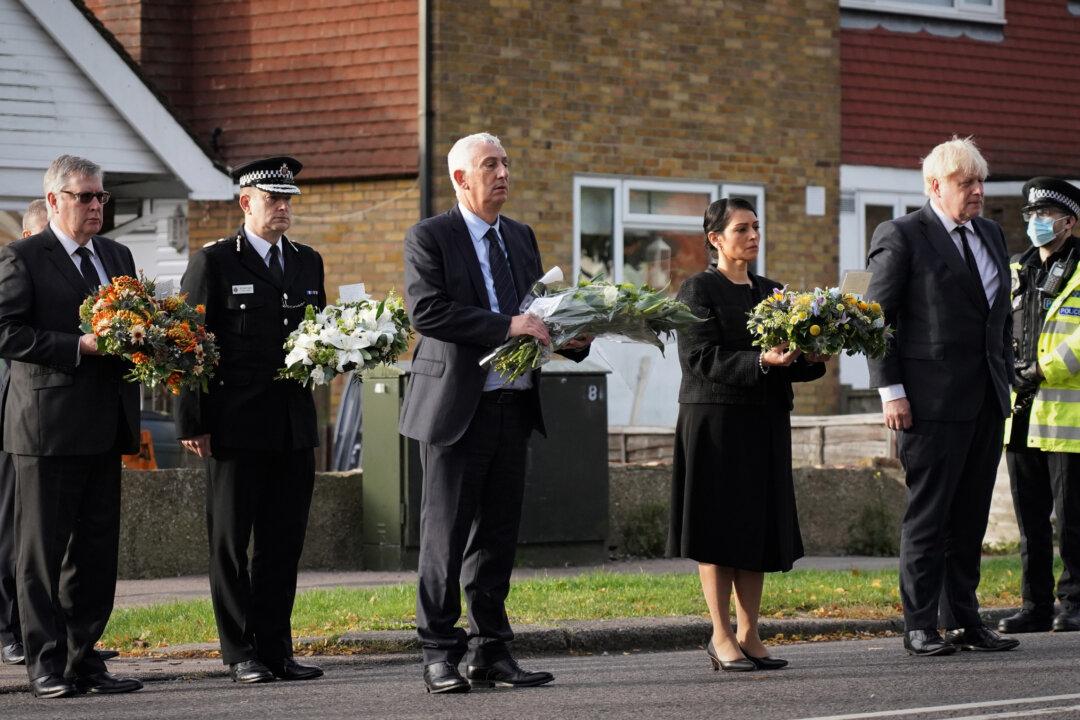LEIGH-ON-SEA, England—Leaders from across the political spectrum came together Saturday to pay their respects to a long-serving British lawmaker who was stabbed to death in what police say was an Islamic terrorist-related attack. His death has reopened questions about the security of lawmakers as they go about their work.
The slaying Friday of the 69-year-old Conservative member of Parliament David Amess during a regular meeting with local voters has caused shock and anxiety across Britain’s political spectrum, just five years after Labour Party lawmaker Jo Cox was murdered by a far-right extremist in her small-town constituency.




